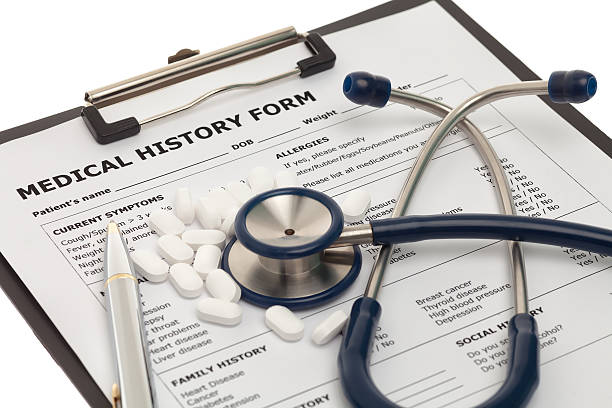Introduction
Today in this article we discuss Pregnancy Meal Plan Pregnancy is a journey of change that brings joy, excitement and an abundance of questions, especially regarding nutrition. What you eat during those crucial nine months can have a significant impact on your baby’s health and development.
This comprehensive guide aims to provide you with a well-rounded eating plan to ensure optimal fetal growth, combining scientific insights with practical nutritional advice.
Understanding nutritional needs during pregnancy
Pregnancy increases your body’s nutritional needs. Essential nutrients like folic acid, iron, calcium and DHA play an important role in fetal development. Folic acid prevents neural tube defects, while iron supports increased blood volume. Calcium strengthens bones, and DHA is essential for brain development. Including these nutrients in your diet is very important for a healthy pregnancy.
First quarter focus
Important changes occur in the first trimester, including the development of the baby’s neural tube, which becomes the brain and spinal cord. Morning sickness can make eating difficult, but small, frequent meals rich in folic acid, such as leafy greens, beans and fortified cereals, are beneficial. Adding ginger and peppermint can help relieve nausea.
Second trimester essentials
As you enter the second trimester, baby’s organs continue to grow, and nutritional needs increase. Iron-rich foods like lean meats, spinach and beans are essential to support increased blood supply. Calcium-rich foods such as dairy products, tofu, and almonds support bone growth. Omega-3 fatty acids from sources like salmon and flaxseeds support brain development.
Third trimester nutrition
The third trimester focuses on preparing the baby for birth. Increased protein intake helps to grow faster, while foods rich in vitamin K, such as leafy greens, help with blood clotting. Staying hydrated is very important because amniotic fluid needs are at their peak. Whole grains, lean protein, and plenty of fruits and vegetables should dominate your diet.
The importance of hydration
Hydration is often overlooked but essential during pregnancy. Water helps make amniotic fluid, supports digestion, and helps circulate nutrients. Try to drink at least 8-10 glasses of water daily. Water-rich foods such as cucumbers, oranges, and strawberries can also help maintain hydration levels.
Healthy snacking options
Snacking can help maintain energy levels and prevent nausea. Choose nutritious snacks like yogurt with berries, nuts and seeds, or carrot sticks with hummus. Avoid high-sugar and high-fat snacks, which provide little nutrition and can lead to unnecessary weight gain.
Foods to Avoid
Avoid certain foods while pregnant because they may be harmful. These include raw or undercooked meat, unpasteurized dairy products, and high-mercury fish such as swordfish and king mackerel. Caffeine intake should be limited, and alcohol should be avoided completely to prevent developmental problems.
Management of desires and aversions
Cravings and aversions are common during pregnancy. While it’s okay to indulge in occasional cravings, try to find healthy alternatives. For example, if you’re craving something sweet, choose a fruit smoothie instead of candy. Aversions can be difficult to manage. Try to find alternative foods that offer similar nutritional benefits.
Vegetarian and vegan considerations
Vegetarian and vegan diets can provide all the necessary nutrients if well planned. Ensure an adequate intake of plant-based protein such as beans, lentils and quinoa. Fortified foods and supplements can help meet vitamin B12, iron and DHA needs. Consulting a dietitian can help create a balanced meal plan.
Supplements and vitamins
While a balanced diet is the best way to get nutrients, prenatal vitamins can help fill in the gaps. Essential supplements include folic acid, iron, calcium and DHA. Always check with your healthcare provider before starting any new supplement to make sure it is safe for you and your baby.
Meal planning tips
Effective meal planning can make eating healthy during pregnancy easier.. Plan a week’s worth of meals that incorporate a wide range of foods from all food groups. Prepare meals in advance and keep healthy snacks on hand. Using a slow cooker or Instant Pot can save time and effort.
Recipes for a healthy pregnancy.
Adding nutritious recipes to your meal plan can make eating healthy and enjoyable. Try a quinoa salad with greens and avocado for a nutrient-packed lunch or a smoothie with spinach, kale and almond milk for a quick breakfast. Experiment with different ingredients to keep your meals interesting and nutritious.
Coping with common pregnancy symptoms
Certain symptoms like constipation, heartburn and fatigue are common during pregnancy. Increasing fiber intake with whole grains, fruits, and vegetables can relieve constipation.
Eating small, frequent meals and avoiding spicy foods can help control heartburn. Staying hydrated and getting enough rest can combat fatigue.
The role of exercise and diet
Exercise, combined with a healthy diet, can improve your overall health during pregnancy. Regular physical activity can help with weight loss, reduce stress and improve sleep.
Walking, swimming, and prenatal yoga are all safe and beneficial activities. Continuously counsel your medical services supplier prior to starting any work-out daily practice.
Postnatal nutrition
Nutrition is important even after childbirth. A well-balanced diet helps with recovery, supports lactation, and provides energy for the demands of new motherhood.
Focus on nutritious foods, stay hydrated, and continue taking prenatal vitamins if breastfeeding. Postpartum meal planning can help you manage time and make sure you’re eating healthy.
Conclusion
Pregnancy Meal Plan A balanced and nutritious diet is essential for optimal fetal growth and your health during pregnancy. By understanding your nutritional needs and including a variety of nutritious foods, you can help your baby grow and prepare your body for the challenges of childbirth and beyond.
This comprehensive guide provides the foundation for a healthy pregnancy eating plan that can be tailored to your individual needs and preferences.
